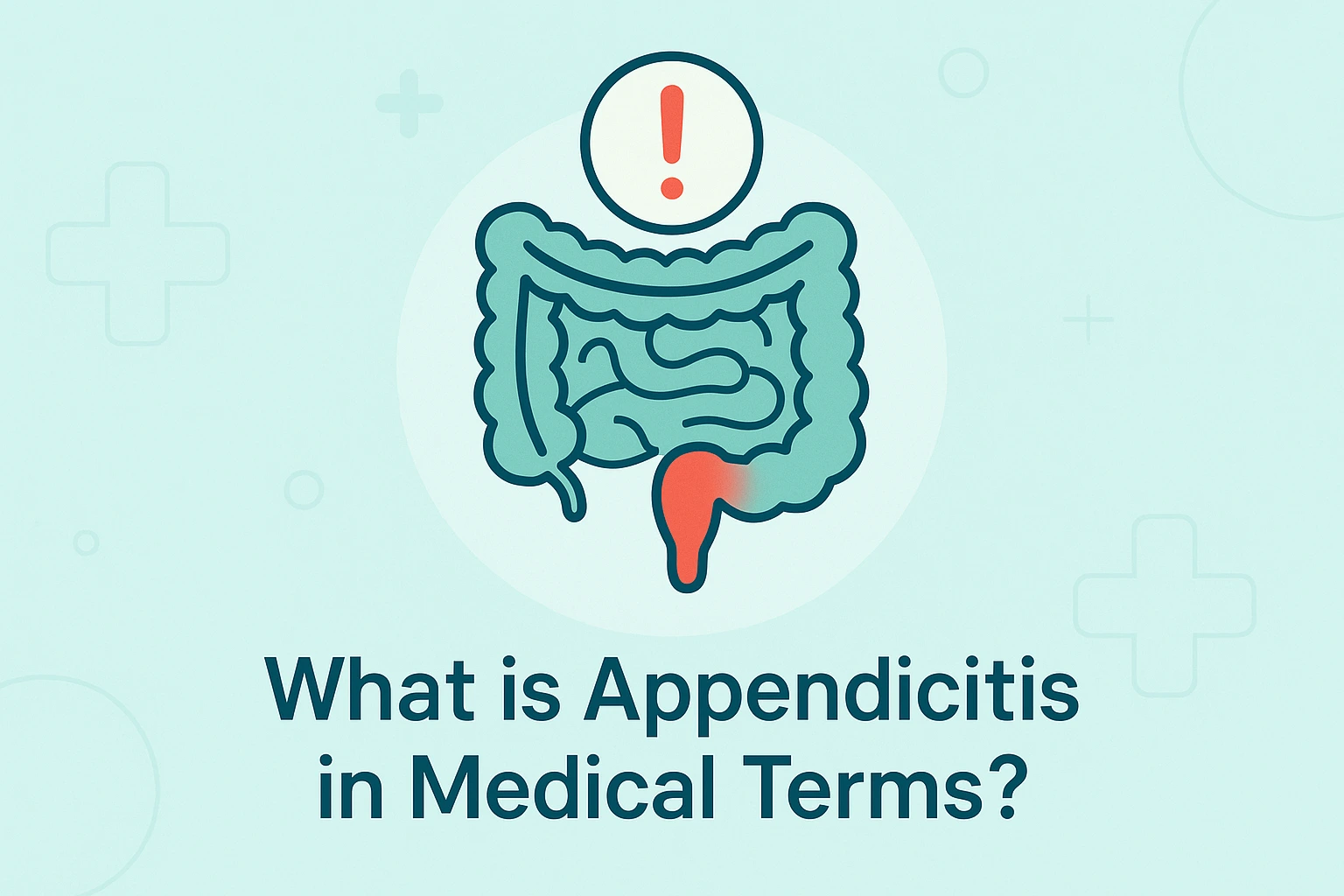Appendicitis is an inflammation of the appendix, a small, finger-shaped pouch attached to the large intestine. The appendix is located in the lower right abdomen, and although its exact function is not fully understood, it is thought to play a role in the immune system. Appendicitis occurs when the appendix becomes blocked, often by fecal matter, foreign bodies, or tumors, causing it to become inflamed and filled with pus. If left untreated, the appendix can rupture, leading to a life-threatening infection in the abdominal cavity called peritonitis.

Causes and Risk Factors of Appendicitis
The exact cause of appendicitis is not always clear, but several factors can contribute to its development:
- Blockage of the appendix: The most common cause is a blockage in the appendix, which can be caused by fecal matter, foreign objects, or enlarged lymphoid tissue.
- Infection: A bacterial or viral infection can cause inflammation of the appendix. It’s believed that the infection leads to swelling and pus buildup within the appendix.
- Age and gender: Appendicitis is most common in people between the ages of 10 and 30. It affects both males and females but is slightly more common in males.
- Family history: A family history of appendicitis increases the likelihood of developing the condition.
Symptoms of Appendicitis
The symptoms of appendicitis usually develop suddenly and may worsen quickly. Common signs include:
- Pain: The most prominent symptom is abdominal pain, usually starting around the navel and shifting to the lower right abdomen. The pain may become sharp and intense over time.
- Loss of appetite: A decreased desire to eat, often accompanied by nausea and vomiting.
- Fever: A low-grade fever that may increase as the condition progresses.
- Swelling in the abdomen and a feeling of fullness.
- Inability to pass gas: A feeling of bloating or discomfort due to a blockage in the intestines.
- Rebound tenderness: Pain that occurs when pressure on the abdomen is quickly released, a classic sign of appendicitis.
In some cases, the pain may begin in the upper abdomen or the back rather than the lower right side, making diagnosis more difficult.
Diagnosis and Treatment of Appendicitis
Diagnosing appendicitis typically involves a combination of a physical examination, blood tests, and imaging tests such as:
- Physical examination: A healthcare provider will check for tenderness in the lower right abdomen and signs of rebound tenderness.
- Blood tests: These can show elevated white blood cell counts, indicating infection or inflammation.
- Imaging tests: Ultrasound, CT scan, or MRI may be used to confirm the diagnosis and rule out other potential causes of the symptoms.
The primary treatment for appendicitis is surgery. If caught early, laparoscopic appendectomy (minimally invasive surgery) is typically performed to remove the appendix. In more complicated cases, such as a ruptured appendix or the presence of an abscess, a traditional open appendectomy may be required.
In some cases, if an abscess is present, drainage of the infected area may be necessary before the appendix is removed.
Prevention of Appendicitis
There are no specific measures to prevent appendicitis, but early diagnosis and treatment are essential to prevent complications such as rupture. Maintaining overall gut health, such as by consuming a fiber-rich diet, can reduce the risk of blockages in the appendix.
When to Seek Medical Help for Appendicitis?
If you experience sudden abdominal pain, especially if it starts around the navel and then shifts to the lower right side of the abdomen, it’s important to seek immediate medical attention. Appendicitis can worsen quickly, and early diagnosis and treatment are critical to prevent life-threatening complications.
FAQs for Appendicitis
When should I go to the ER for appendicitis?
If you experience severe abdominal pain, fainting, or confusion, seek emergency care immediately.
Can heat and dehydration affect appendicitis risk?
While not directly linked, extreme heat and dehydration may exacerbate abdominal discomfort, especially during long-haul travel or fasting.
How can I reduce my risk of appendicitis?
Maintaining a balanced diet and staying hydrated may support overall digestive health.
